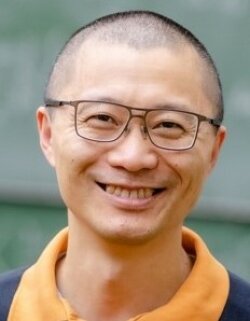Computational Neuroscience
Institute for Neural Computation
Faculty of Computer Science
Ruhr University Bochum
Universitätsstr. 150
44801 Bochum
Room:
NB 3/33
Phone:
+49 (0)234 32-29486
Email:
sen.cheng@ruhr-uni-bochum.de

My research group investigates the neural and cognitive mechanisms of episodic memory and spatial navigation using a variety of computational methods such as biological neural networks, cognitive modeling, and machine learning. My research is interdisciplinary and combines philosophical, psychological, neuroscientific and computational approaches. We collaborate closely with neuroscientists on the RUB campus and at other universities in Germany and abroad. For instance, I founded and currently head the DFG-funded research unit FOR 2812 "Constructing scenarios of the past: A new framework in episodic memory".
Diekmann, N., & Cheng, S. (2023). A model of hippocampal replay driven by experience and environmental structure facilitates spatial learning. ELife, 12. https://doi.org/10.7554/eLife.82301
Parra-Barrero, E., Vijayabaskaran, S., Seabrook, E., Wiskott, L., & Cheng, S. (2023). A map of spatial navigation for neuroscience. Neuroscience and Biobehavioral Reviews, 152, 105200. https://doi.org/10.1016/j.neubiorev.2023.105200
Watkins de Jong, L., Nejad, M. M., Yoon, E., Cheng, S., & Diba, K. (2023). Optogenetics reveals paradoxical network stabilizations in hippocampal CA1 and CA3. Current Biology : CB, 33(9), 1689-1703.e5. https://doi.org/10.1016/j.cub.2023.03.032
Batsikadze, G., Diekmann, N., Ernst, T. M., Klein, M., Maderwald, S., Deuschl, C., Merz, C. J., Cheng, S., Quick, H. H., & Timmann, D. (2022). The cerebellum contributes to context-effects during fear extinction learning: A 7T fMRI study. NeuroImage, 253, 119080. https://doi.org/10.1016/j.neuroimage.2022.119080
Vijayabaskaran, S., & Cheng, S. (2022). Navigation task and action space drive the emergence of egocentric and allocentric spatial representations. PLoS Computational Biology, 18(10), e1010320. https://doi.org/10.1371/journal.pcbi.1010320
Parra-Barrero, E., Diba, K., & Cheng, S. (2021). Neuronal sequences during theta rely on behavior-dependent spatial maps. ELife, 10. https://doi.org/10.7554/eLife.70296
Giri, B., Miyawaki, H., Mizuseki, K., Cheng, S., & Diba, K. (2019). Hippocampal Reactivation Extends for Several Hours Following Novel Experience. The Journal of Neuroscience : The Official Journal of the Society for Neuroscience, 39(5), 866–875. https://doi.org/10.1523/JNEUROSCI.1950-18.2018
Cheng, S., Werning, M., & Suddendorf, T. (2016). Dissociating memory traces and scenario construction in mental time travel. Neuroscience and Biobehavioral Reviews, 60, 82–89. https://doi.org/10.1016/j.neubiorev.2015.11.011
Cheng, S., & Frank, L. M. (2008). New experiences enhance coordinated neural activity in the hippocampus. Neuron, 57(2), 303–313. https://doi.org/10.1016/j.neuron.2007.11.035